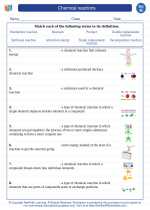Granulation
Granulation is a process that involves the formation of small, rounded particles or granules from a powder or a mixture of powders. This process is commonly used in various industries such as pharmaceuticals, food processing, and metallurgy.
Formation of Granules
The formation of granules typically involves the use of a granulator, which agglomerates the powder particles into larger, more cohesive granules. This is often achieved through a combination of agitation, compaction, and binding agents.
Applications of Granulation
Granulation is widely used in the pharmaceutical industry for the production of tablets and capsules. By granulating the active pharmaceutical ingredients with excipients, the flow properties, compressibility, and bulk density of the powder mixture are improved, making it easier to manufacture uniform and consistent dosage forms.
In the food industry, granulation is used to produce granular products such as instant drink mixes, seasoning blends, and nutritional supplements. By granulating ingredients such as sugars, salts, and vitamins, the handling and dispersibility of these products are enhanced.
In metallurgy, granulation is employed in the production of metal powders for various applications such as additive manufacturing (3D printing), sintering, and thermal spray coatings.
Study Guide
Here are some key points to remember when studying granulation:
- Understand the processes involved in granulation, including agglomeration, compaction, and binding.
- Learn about the different types of granulators used in various industries and their mechanisms of action.
- Explore the applications of granulation in pharmaceuticals, food processing, and metallurgy.
- Understand the importance of granulation in improving the flow properties, compressibility, and handling of powders.
- Study the different methods and techniques used in granulation, such as wet granulation, dry granulation, and direct compression.
By understanding the principles and applications of granulation, you can gain insights into its significance in various industries and its role in the production of a wide range of products.
.◂Science Worksheets and Study Guides Eighth Grade. Chemical reactions
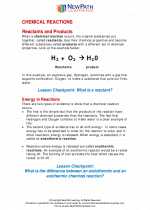
 Activity Lesson
Activity Lesson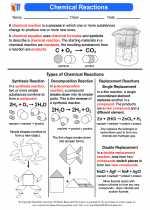
 Worksheet/Answer key
Worksheet/Answer key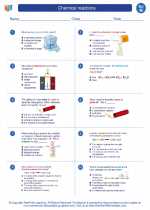
 Worksheet/Answer key
Worksheet/Answer key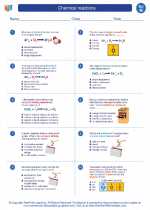
 Worksheet/Answer key
Worksheet/Answer key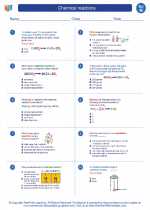
 Worksheet/Answer key
Worksheet/Answer key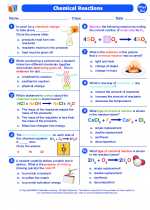
 Vocabulary/Answer key
Vocabulary/Answer key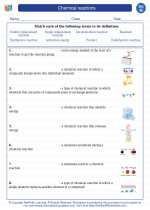
 Vocabulary/Answer key
Vocabulary/Answer key